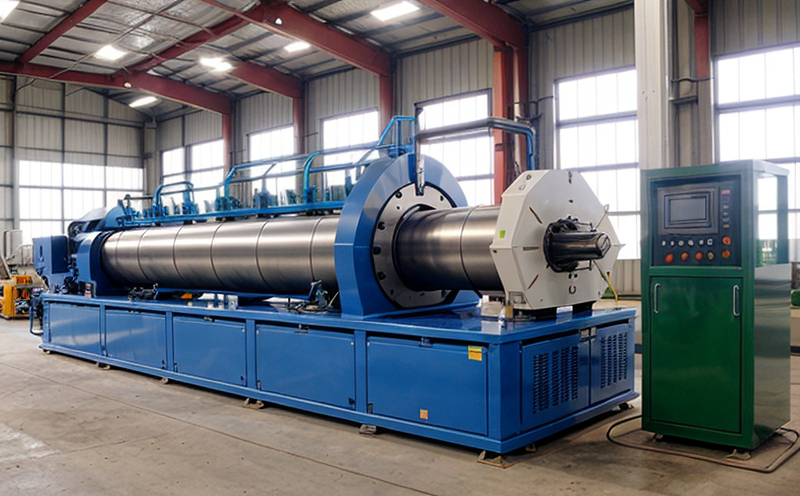ISO 22693 Resource Efficiency Assessment of Recycling Facilities
The ISO 22693 standard provides a framework for assessing resource efficiency in recycling facilities. This service focuses on the comprehensive evaluation of material recovery processes, waste management strategies, and overall operational sustainability within these facilities.
This assessment aims to identify inefficiencies, improve operational effectiveness, and enhance the overall performance of recycling facilities by aligning with international best practices. The process includes detailed analysis of various parameters such as energy consumption, water usage, carbon footprint, and material recovery rates. By applying this standard, organizations can ensure that they are meeting both internal sustainability goals and external regulatory requirements.
The assessment is conducted through a series of tests and evaluations tailored to the specific needs of each facility. These include:
- Material sorting efficiency analysis
- Evaluation of energy consumption in processing stages
- Detailed water usage measurements
- Analysis of greenhouse gas emissions during recycling processes
- Review of waste diversion rates from landfills and incineration
The results provide actionable insights that can be used to optimize resource efficiency, reduce operational costs, and enhance the overall sustainability profile of recycling facilities. This service is particularly beneficial for organizations looking to comply with stringent environmental regulations or improve their corporate social responsibility (CSR) initiatives.
Our team of experts uses advanced analytical tools and methodologies to ensure accurate and reliable assessments. We offer a holistic approach that integrates technical expertise with practical solutions, ensuring that the findings are not only robust but also easily implementable by facility management teams.
The ISO 22693 framework is designed to be adaptable to various recycling processes and materials, making it suitable for facilities dealing with plastics, metals, paper, electronics, and other waste streams. This flexibility allows us to provide tailored assessments that address the unique challenges faced by each facility.
By leveraging this standard, organizations can:
- Evaluate the effectiveness of current recycling processes
- Identify opportunities for improvement in resource efficiency
- Develop strategies to enhance overall sustainability performance
- Ensure compliance with international standards and regulatory requirements
- Enhance brand reputation through transparent reporting on environmental impact
The assessment process typically involves a combination of data collection, analysis, and consultation sessions. We work closely with facility management teams to gather all necessary information and ensure that the assessment reflects the unique operational context of each recycling facility.
Our team uses state-of-the-art equipment and software to conduct these assessments. This includes advanced sensors for measuring energy consumption, specialized sorting machines for evaluating material recovery rates, and sophisticated models for calculating carbon footprints. The data collected is then analyzed using industry-standard methodologies to provide a comprehensive evaluation of the facility's resource efficiency.
The results are presented in detailed reports that include recommendations for improvements, along with clear metrics for measuring progress over time. These reports serve as valuable tools for facility management teams and stakeholders, providing them with the information they need to make informed decisions about operational improvements.
Industry Applications
- Paper recycling facilities
- Metal recycling plants
- Plastic waste processing units
- E-waste management centers
- Bio-waste composting operations
- Urban waste management systems
Quality and Reliability Assurance
The ISO 22693 framework ensures that all assessments are conducted with the highest level of accuracy and reliability. Our team follows strict protocols for data collection, ensuring that every measurement is precise and consistent. This approach not only enhances the validity of the results but also builds trust between us and our clients.
We employ a rigorous quality control process to maintain consistency across all assessments. This includes regular calibration of instruments, training of staff on the latest methodologies, and continuous monitoring of performance metrics. By adhering to these stringent standards, we ensure that our clients receive reliable and actionable insights from their resource efficiency assessments.
The use of international standards such as ISO 22693 not only ensures consistency but also demonstrates a commitment to excellence in quality management. This is particularly important for organizations operating across multiple jurisdictions or seeking certification from recognized bodies.
Our team works closely with clients throughout the assessment process, providing support and guidance at every stage. From initial consultation to final report delivery, we ensure that clients have all the information they need to make informed decisions about operational improvements. This level of collaboration helps to build long-term relationships based on trust and mutual understanding.
International Acceptance and Recognition
The ISO 22693 standard is widely recognized and accepted across the globe, making it an ideal framework for resource efficiency assessments in recycling facilities. Its adoption by numerous international organizations underscores its relevance and effectiveness as a tool for enhancing sustainability practices.
Many countries have incorporated this standard into their national regulations, recognizing its value in promoting environmental stewardship and responsible resource management. By aligning with ISO 22693, facilities can ensure that they are meeting global standards and contributing to international efforts towards sustainable development.
The use of internationally recognized frameworks such as ISO 22693 also provides organizations with a competitive edge in the marketplace. It demonstrates their commitment to environmental responsibility and sets them apart from competitors who may not have adopted similar best practices. This can lead to increased market share, improved brand reputation, and enhanced stakeholder confidence.
Our team is well-versed in international standards and regulatory requirements, ensuring that clients are fully informed about the implications of adopting ISO 22693. We provide tailored advice on how to leverage this standard for maximum impact, helping facilities navigate complex regulatory landscapes with ease.





